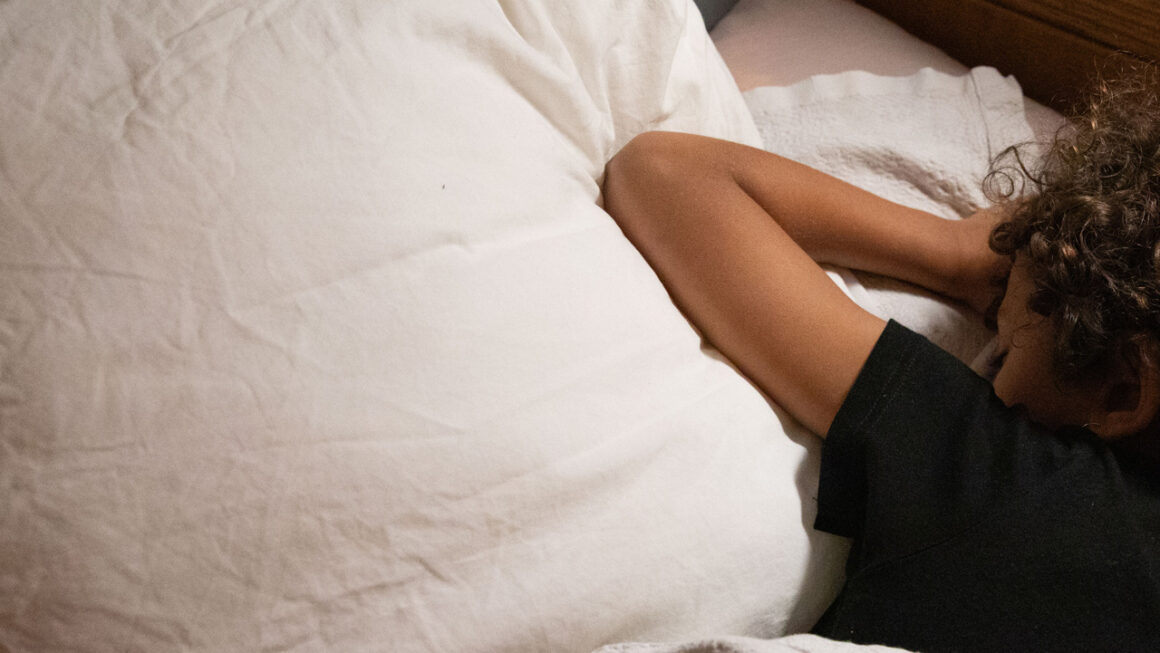As a soccer mom, you know that your child’s athletic schedule can be packed—from practices to games and everything in between. But while we focus so much on training, nutrition, and fitness, one key component of an athlete’s overall health often gets overlooked: sleep. It’s not just about getting enough hours of rest—it’s about understanding the role sleep plays in your child’s performance and recovery.
Sleep is a powerful tool for young athletes. It’s during rest that their bodies repair, grow stronger, and replenish the energy they’ll need for the next day’s practice or game. If your child isn’t getting the sleep they need, it could affect everything from their physical performance to their mental sharpness.
Here’s why sleep should be at the top of your list when it comes to supporting your young athlete.
1. Boosts Physical Performance
When athletes sleep, their bodies release growth hormones that help repair and build muscle tissue. These hormones are crucial for improving strength, endurance, and overall athletic performance.
How Sleep Helps:
- Muscle Recovery: Sleep allows muscles to recover from the wear and tear of physical activity, reducing soreness and improving performance for the next training session or game.
- Energy Replenishment: Sleep helps to restore energy stores (like glycogen) that your child needs for the next round of activity. Without enough rest, your child may feel sluggish or fatigued, reducing their ability to perform at their best.
2. Enhances Mental Sharpness and Focus
Sports aren’t just about physical prowess—they also require strategy, decision-making, and quick reactions. Sleep is critical for cognitive function, helping your child stay focused, make better decisions, and react more quickly during games.
How Sleep Helps:
- Improved Reaction Time: A well-rested athlete is faster and more responsive to on-field situations.
- Better Focus and Decision-Making: Sleep enhances concentration, memory, and problem-solving skills, allowing your child to stay mentally sharp during fast-paced games.
- Mood Regulation: A good night’s sleep also helps regulate mood and stress levels, preventing irritability and anxiety, which can interfere with athletic performance.
3. Reduces the Risk of Injury
Sleep plays an important role in injury prevention. When a young athlete’s body is well-rested, their muscles and joints are better able to handle the physical stresses of intense activity.
How Sleep Helps:
- Improved Coordination and Balance: Rest helps the nervous system function more efficiently, improving coordination, balance, and overall control.
- Faster Healing: Sleep is when the body heals itself. If your child is injured, sleep helps speed up the recovery process by increasing the production of growth hormones and reducing inflammation.
4. Supports Emotional Health and Resilience
Sleep is not only important for physical and mental performance but also for emotional well-being. Young athletes face a lot of pressure to perform well, and inadequate sleep can lead to stress, anxiety, and burnout.
How Sleep Helps:
- Stress Management: Rest allows the body to regulate cortisol (the stress hormone), which helps your child cope with pressure and bounce back from setbacks.
- Improved Mood: Sleep helps to keep your child’s mood stable and positive, promoting a resilient mindset that is essential for sports and life.
5. Sleep Affects Growth and Development
For young athletes, sleep is essential for growth and overall development. Children and teenagers are still in the critical stages of physical and mental development, and sleep plays a pivotal role in their growth process.
How Sleep Helps:
- Growth and Tissue Repair: Growth hormones are released during deep sleep, promoting physical growth, muscle development, and bone strength.
- Brain Development: Sleep also supports cognitive growth, memory consolidation, and emotional maturity—all of which are important for learning new skills, strategies, and maintaining a healthy mindset.
How Much Sleep Does a Young Athlete Need?
The amount of sleep a young athlete needs depends on their age, activity level, and individual needs. However, here are some general guidelines:
- Children (6-12 years): 9-12 hours of sleep per night.
- Teenagers (13-18 years): 8-10 hours of sleep per night.
These recommendations are just the baseline—if your child is very active in sports, they may need even more sleep to fully recover and perform at their best.
Tips for Helping Your Child Get Enough Sleep
As a soccer mom, you can help set your child up for success by encouraging healthy sleep habits:
- Create a Consistent Sleep Schedule: Try to make sure your child goes to bed and wakes up at the same time every day, even on weekends. This helps regulate their internal clock and promotes better sleep quality.
- Limit Screen Time Before Bed: The blue light from phones, tablets, and computers can interfere with the production of melatonin, a hormone that helps regulate sleep. Encourage your child to turn off screens at least 30-60 minutes before bedtime.
- Encourage Relaxing Bedtime Routines: A calm routine, like reading a book or listening to calming music, can signal to your child’s body that it’s time to wind down and get ready for sleep.
- Create a Sleep-Friendly Environment: Make sure your child’s bedroom is dark, quiet, and cool. Consider blackout curtains and a white noise machine to block out distractions.
- Prioritize Sleep on Game Days: If your child has a big game the next day, make sure they get extra rest the night before. This will give them the mental and physical energy needed to perform at their best.
Conclusion
As a soccer mom, it’s easy to get caught up in the hustle of practice schedules, drills, and game day prep—but never underestimate the importance of sleep. Encouraging your young athlete to prioritize rest will not only help them recover, but it will also improve their performance, reduce injury risk, and support their overall well-being. Sleep is a vital part of the training process, and ensuring your child gets enough rest will help them succeed both on and off the field.
A well-rested athlete is a happy, healthy, and high-performing athlete—so make sleep a priority and watch your child’s athletic abilities soar!




